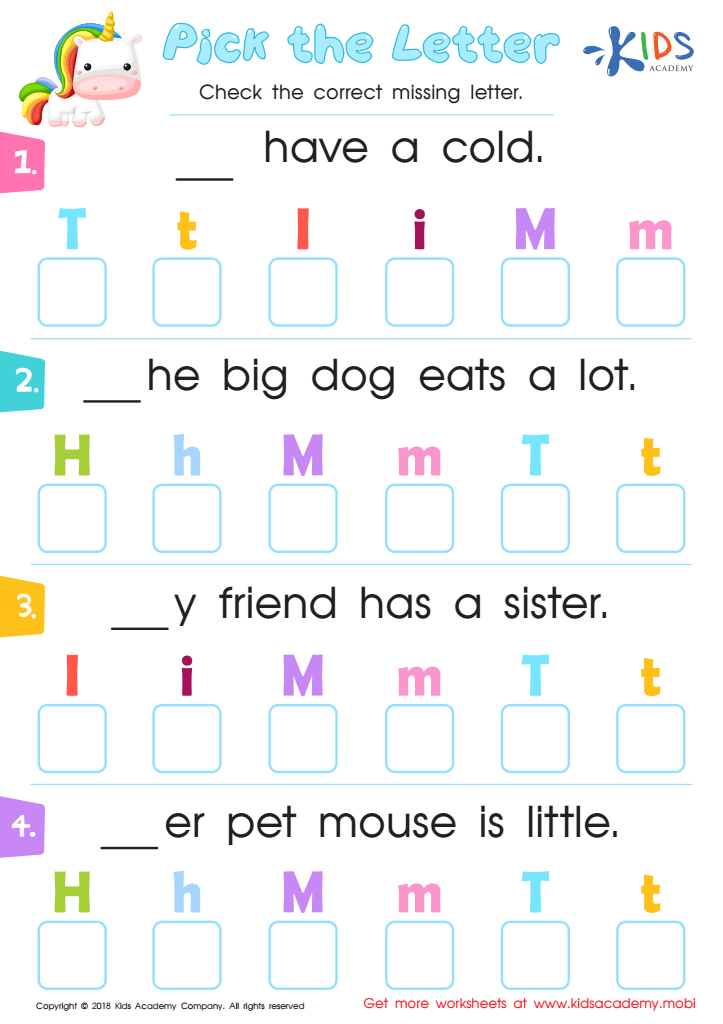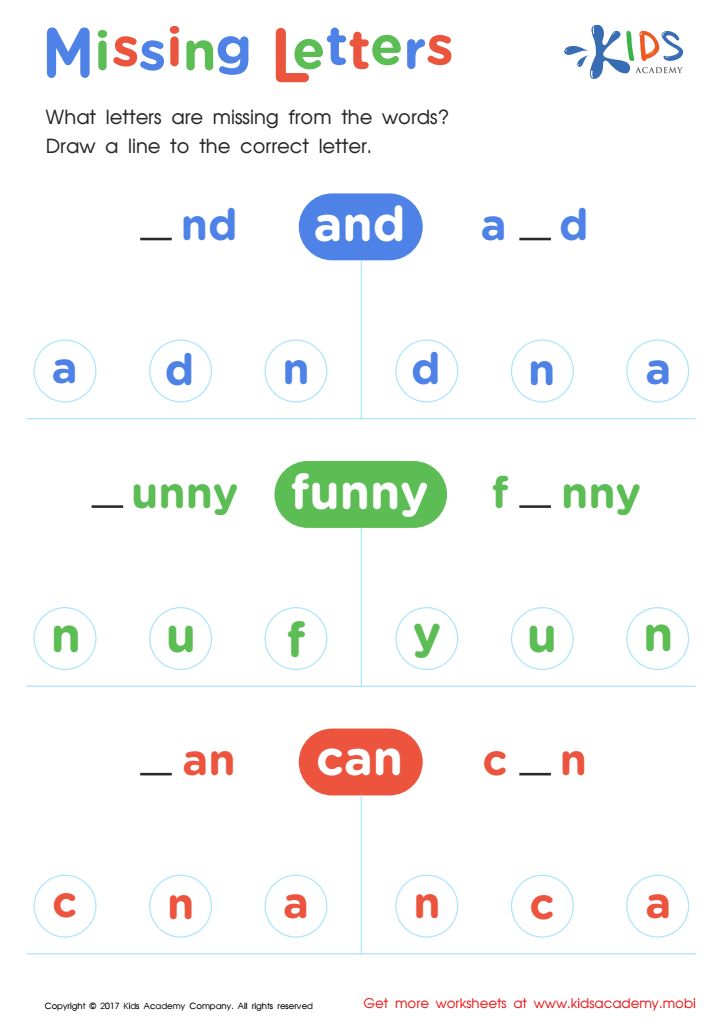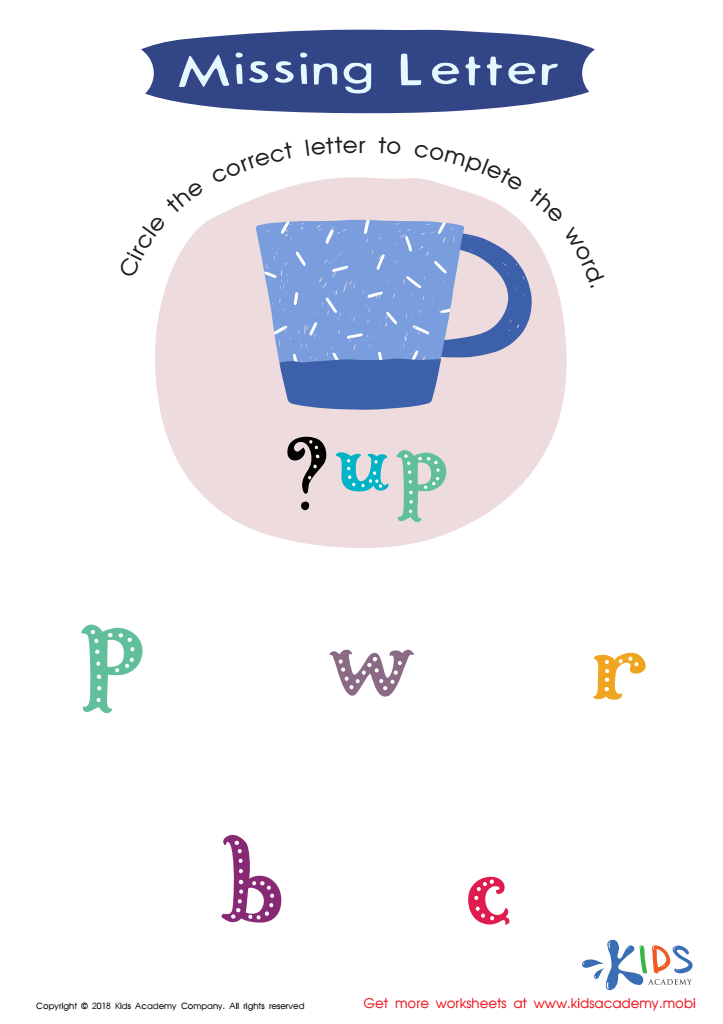Alphabet Recognition Missing Letters Worksheets for Ages 3-8
3 filtered results
-
From - To
Boost your child's early literacy skills with our Alphabet Recognition Missing Letters Worksheets for ages 3-8! Designed to make learning fun and engaging, these worksheets help young learners identify and place missing letters, reinforcing their understanding of the alphabet. Perfect for both classroom and home use, our worksheets provide a variety of activities that support the development of fine motor skills and letter recognition. Each worksheet is carefully crafted to challenge and excite learners, ensuring they stay motivated and eager to learn. Give your child a head start on their reading journey with these valuable educational resources!


Pick the Letter Worksheet


Missing Letters Worksheet


Missing Letter Worksheet
Alphabet recognition and proficiency in identifying missing letters is a foundational skill for children ages 3-8 and is crucial for several reasons. Early literacy development hinges upon this ability, as recognizing letters and their sequence builds the basis for reading and writing.
Firstly, grasping the alphabet helps children understand phonics, the relationship between letters and their sounds. This understanding is a key precursor to efficient decoding of words, crucial for reading fluency. Activities involving missing letters specifically challenge children to think critically and use their knowledge in a problem-solving context, reinforcing their grasp of letter order and patterns.
Secondly, these activities support cognitive development by enhancing memory, concentration, and attention to detail. Spotting and filling in missing letters demands that children recall the correct letter order and recognize the missing elements, thereby exercising their brain and improving overall cognitive skills.
Moreover, early exposure to letter recognition activities initiates a lifelong enjoyment of learning. It can transform literacy into a fun and engaging subject through interactive play, which encourages consistent practice and deepens comprehension.
In conclusion, prioritizing alphabet recognition and missing letter activities provides children with essential skills, ensuring that they are well-prepared for the more advanced literacy challenges they will face as they progress in their education.
 Assign to My Students
Assign to My Students














